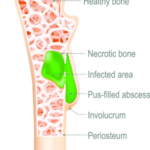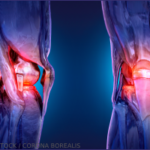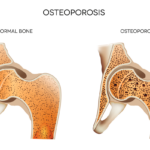2023 marks the post-pandemic return of research exchanges hosted by the ACR & EULAR to benefit junior academic rheumatologists & rheumatology professionals.


Ruth Jessen Hickman, MD, was born and raised in eastern Kentucky, where she first cultivated her love of literature, writing and personal narratives. She attended Kenyon college, where she received a Bachelor of Arts in philosophy, summa cum laude. She worked with individuals with psychiatric conditions and later in a neuroscience lab at the University of Illinois, Chicago, before graduating from Indiana University Medical School in 2011. Instead of pursuing clinical medicine, Ruth opted to build on her strength of clearly explaining medical topics though a career as a freelance medical writer, writing both for lay people and for health professionals. She writes across the biomedical sciences, but holds strong interests in rheumatology, neurology, autoimmune diseases, genetics, and the intersection of broader social, cultural and emotional contexts with biomedical topics. Ruth now lives in Bloomington, Ind., with her husband, son and cat. She can be contacted via her website at ruthjessenhickman.com.

2023 marks the post-pandemic return of research exchanges hosted by the ACR & EULAR to benefit junior academic rheumatologists & rheumatology professionals.

In an ACR Convergence 2022 session, Robert Spiera, MD, director of the Scleroderma, Vasculitis, and Myositis Center at the Hospital for Special Surgery, New York City, discussed the use of sarilumab as a potential glucocorticoid-sparing therapy in a phase 3 study in patients with treatment-refractory polymyalgia rheumatica (PMR), one of the most common inflammatory diseases…

Georg Schett, MD, presented the latest research into CAR T cell therapy for rheumatic diseases, such as systemic lupus erythematosus & other conditions. These findings demonstrate remarkable and durable efficacy for the treatment, as well as the potential for disease remission in some patients.

SAN DIEGO—As part of a panel on systemic autoinflammatory diseases (SAIDs) at a Nov. 15 scientific session of ACR Convergence 2023, Sivia Lapidus, MD, shared context and insights on the therapeutic management of patients with these conditions. The Spectrum of SAIDs SAIDs encompass a broad swath of individually rare disorders driven by innate immune responses…

SAN DIEGO—In a scientific session at ACR Convergence 2023, Sindhu Johnson, MD, PhD, and Dinesh Khanna, MD, MSc, discussed ACR’s new guideline on SARDs and ILD.

SAN DIEGO—Panelists at ACR Convergence 2023 debate the merits of IL-6 inhibitors vs. glucocorticoids for the initial treatment of giant cell arteritis (GCA) and polymyalgia rheumatica (PMR).

The ACR released a new arthroplasty guideline in an effort to remedy significant & detrimental delays faced by osteoarthritis or osteonecrosis patients who require surgical intervention.

The ACR recently released an update on the prevention and treatment of glucocorticoid-induced osteoporosis.1 The guideline, which includes information on the new therapies abaloparatide and romosozumab, emphasizes the importance of shared decision making by patients and clinicians, and also gives information on the importance of sequential therapy after stopping certain osteoporotic prevention therapies. Fracture Prevention…

The availability of biosimilars for the treatment of patients with rheumatic diseases exploded in 2023. Here’s where we stand and what to expect going forward.

Discussions between clinicians and their patients about complementary aspects of their care just got easier with the release of the 2022 ACR Guideline for Exercise, Rehabilitation, Diet, and Additional Integrative Interventions for Rheumatoid Arthritis.